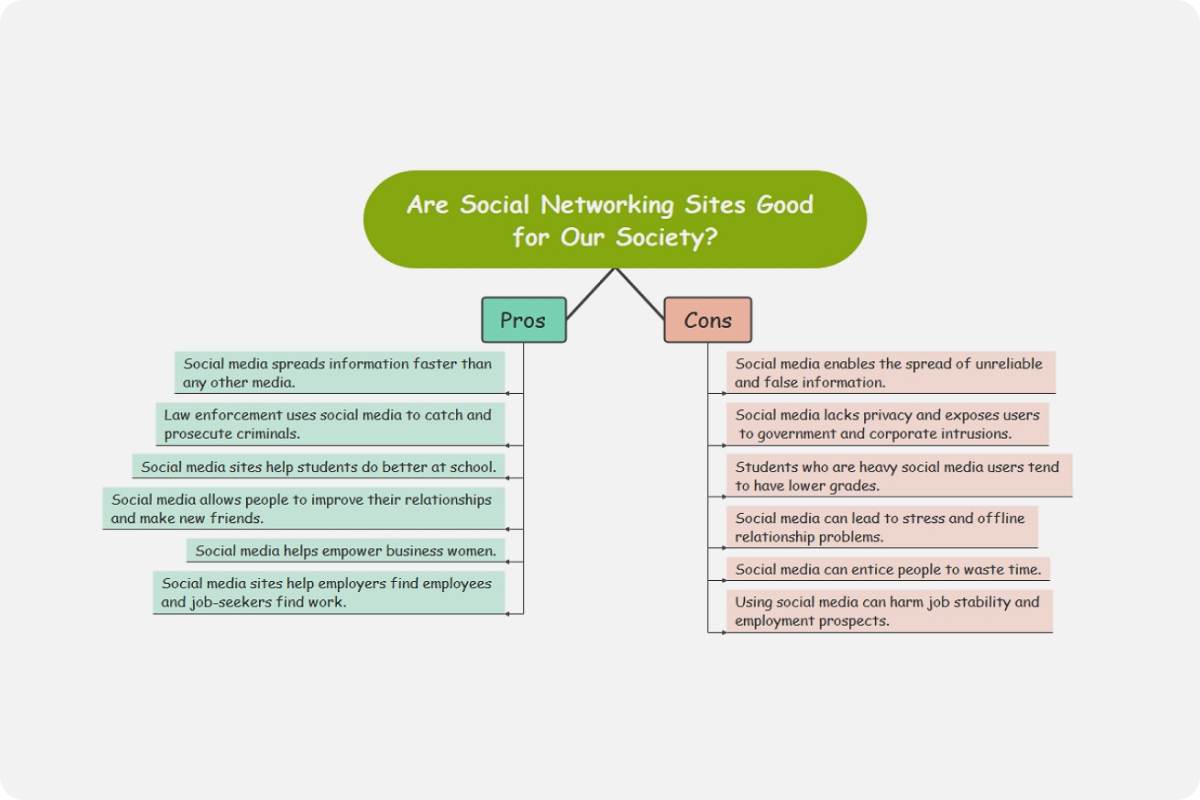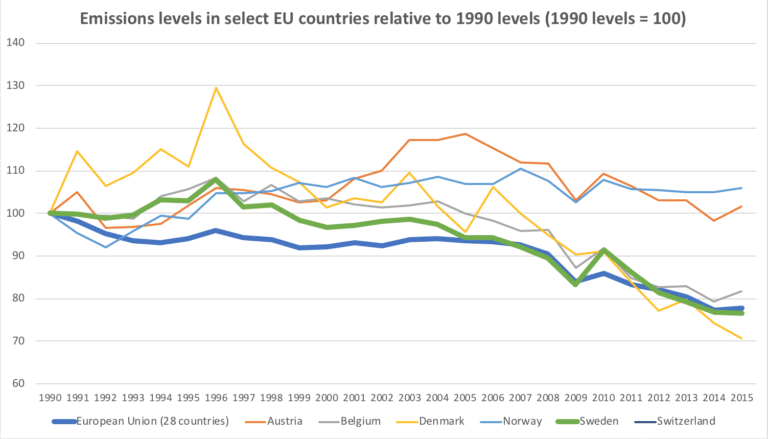pros and cons list carbon tax
Under a flat tax system these matches could be considered earned income which would push. Many companies cant reduce their emissions as much as theyd like to.
/GettyImages-97615566-5b58f1ddc9e77c00713cdd3c.jpg)
Carbon Tax Definition How It Works Pros Cons
Higher carbon tax rates cause larger changes in energy prices.
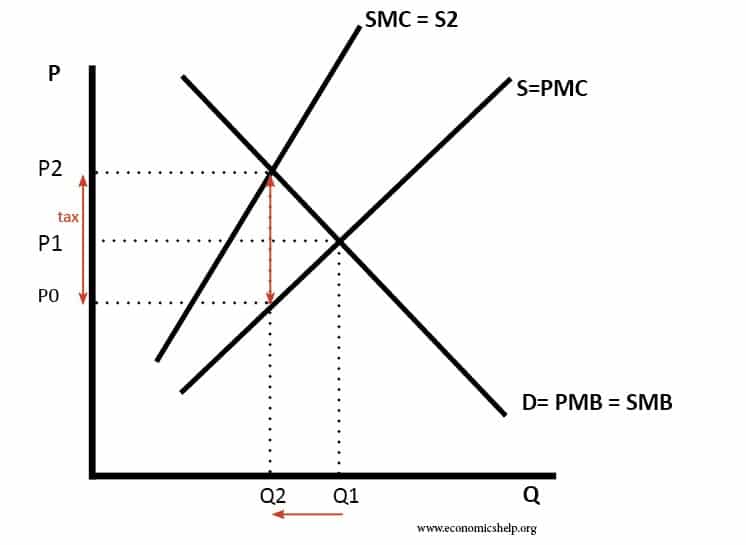
. A carbon tax increases energy costs in proportion to the carbon content of the source of energy. Solar panels wind turbines nuclear power plants and electric cars are no longer enough to mitigate the risks posed by human-driven climate change according to University of Illinois economist Don Fullerton. Production Shift It is possible that companies will move production or their business to places that have lower or no carbon taxes also known as pollution havens.
List of Cons of Carbon Tax. Carbon offsetting has benefits at both ends of the process. A carbon tax might lead me to insulate my home or refrain from heating under-occupied rooms thus reducing emissions at a lower cost than by using expensive electricity generated from green sources.
Of course the tax is proposed to increase steadily but how much per year is not stated. List of the Disadvantages of a Carbon Tax. Proponents claim that a carbon tax would be the most cost-effective way to cut carbon-dioxide emissions.
List of the Cons of a Carbon Tax. Since there are fewer benefits to conserve energy with this disadvantage we can contribute more carbon dioxide and methane to our atmosphere even with capture technologies present. The problem with a carbon tax is that almost no one uses any form of renewable energy on a regular basis.
Indeed within twenty years a modest carbon tax can reduce annual emissions by 12 percent from baseline levels generate enough revenue to lower the corporate income tax rate by 7 percentage. List of Advantages of Carbon Tax 1. A carbon tax would hit lower-income families the hardest said CBO because low-income households generally spend a larger percentage of.
A carbon tax also makes an alternative energy product more cost-competitive in the economy since fossil fuels become more expensive. A climate change economist discusses effectiveness of a carbon tax. If a carbon tax isnt a global initiative then there will be pockets on the planet where corporations and certain individuals will be able to find refuge from these additional fees.
At that level coal prices would rise by more than 200 above. But the carbon tax keeps running aground. On account of the different carbon-intensity of fuels price impacts are most significant for energy produced with coal then petroleum then natural gas.
Almost everyone uses carbon-based fuels exclusively. There are three big problems with the concept. More than 8100 projects in 111 countries have registered with the scheme which has handed out more than 2 billion carbon credits called Certified Emission Reductions CERs representing 2.
Implementing a carbon tax is far from the no-brainer Harris and McAfee seem to believe and its impact is unlikely to do more than marginally accelerate a process that capitalist markets are already fueling. Companies may relocate to. Political solutions to climate change are as every activist monitoring the COP negotiations should know by now largely ineffective.
The potential of a carbon tax might be worth over 100 billion per year in the United States but it is also a system which requires a. Most supplies are either provided by. The purpose of a carbon tax.
Up to 24 cash back end it is best to look at its pros and cons. It helps environmental projects that cant secure funding on their own and it gives businesses increased opportunity to reduce their carbon footprint. And indeed that they keep voting to raise it year after year.
By a carbon tax would eventually decline as well the effect on emissions during the 20122021 period is incorporated in the revenue estimate above. One advantage of a carbon tax would be higher emission reductions than from other policies at the same price. A much more straightforward plan is simply to tax carbon directly.
With the carbon tax causing increases in business overheads companies will be prompted to find more efficient ways to manufacture their products or deliver their services as it would be beneficial to their bottom line. It encourages people to find alternative resources. The Pros and Cons of Taxing Climate Change.
However if the tax rate grew slowly it could produce rising revenues Carbon Tax Congressional Budget Office CBO. In theory the tax will reduce pollution and encourage more environmentally friendly alternatives. However critics argue a tax on carbon will increase costs for business and reduce levels of investment and economic growth.
At a high level the primary advantage is the carbon tax will force companies to find alternative methods in their manufacturing processes by levying a tax that increases their cost. This could have an economic impact especially when trade-offs would fail to help the economy in general. Were a carbon tax policy to begin to move through a future Congress one giant headache would be.
Unfortunately this would also create a major disadvantage as the carbon tax will most likely hurt low-income and middle-class families as this will increase the cost of many goods used in. The advantages and disadvantages of the carbon tax are built on the economic principle of negative externalities. The administration of a carbon tax has relatively high fees.
These are the costs that dont get paid during consumption. The IMF estimates a 75 a ton carbon tax will lead to the amount of emissions scientists estimate will correspond to 2 C of warming. If the carbon tax grows let us say by 20ton annually thus to.
10 rows Carbon Tax Pros Carbon Tax Cons. Proponents of a carbon tax often argue that assigning a fee to carbon dioxide pollution is. Companies and people will just leave the countries where taxes are implemented.
Pros and cons of a carbon tax Executing the policy. What Are the Cons of a Carbon Tax. Researchers modeled three different carbon taxes starting at a per-ton rate of 14 rising 3 percent a year 50 rising 2 percent a year and 73 rising 15 percent a.
A carbon tax is paid for by the people who use the fuel. The Pros of Carbon Offsetting. A carbon tax aims to make individuals and firms pay the full social cost of carbon pollution.
It removes the arbitraging games and artful dodges that have helped undermine cap and trade schemes in places like Europe but in return it requires that politicians vote for a tax.

What Are The Pros And Cons Of Banning Plastic Bags Recycling Facts Plastic Free Life Plastic Bag

Pros And Cons Of Each Regional Economic Model Type For Estimating Download Scientific Diagram
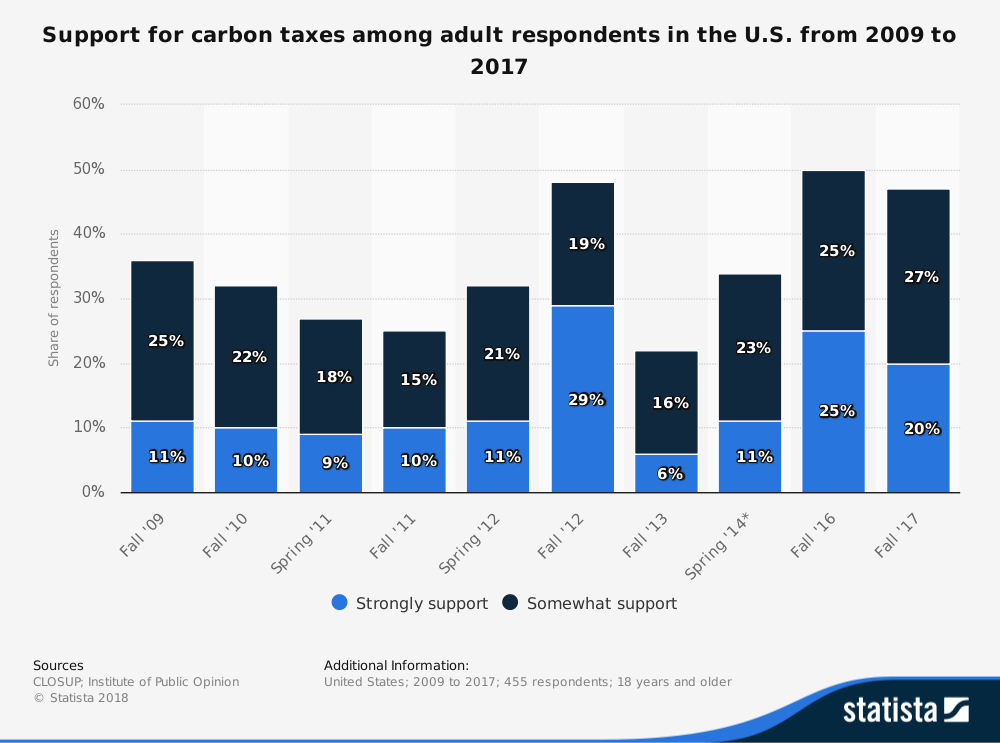
14 Advantages And Disadvantages Of Carbon Tax Vittana Org

Sustainable Aviation Fuel What It Is Pros Cons More Better Meets Reality

Carbon Tax Pros And Cons Economics Help

Carbon Tax Pros And Cons Economics Help

Disposable Plastics And Recycling Trends
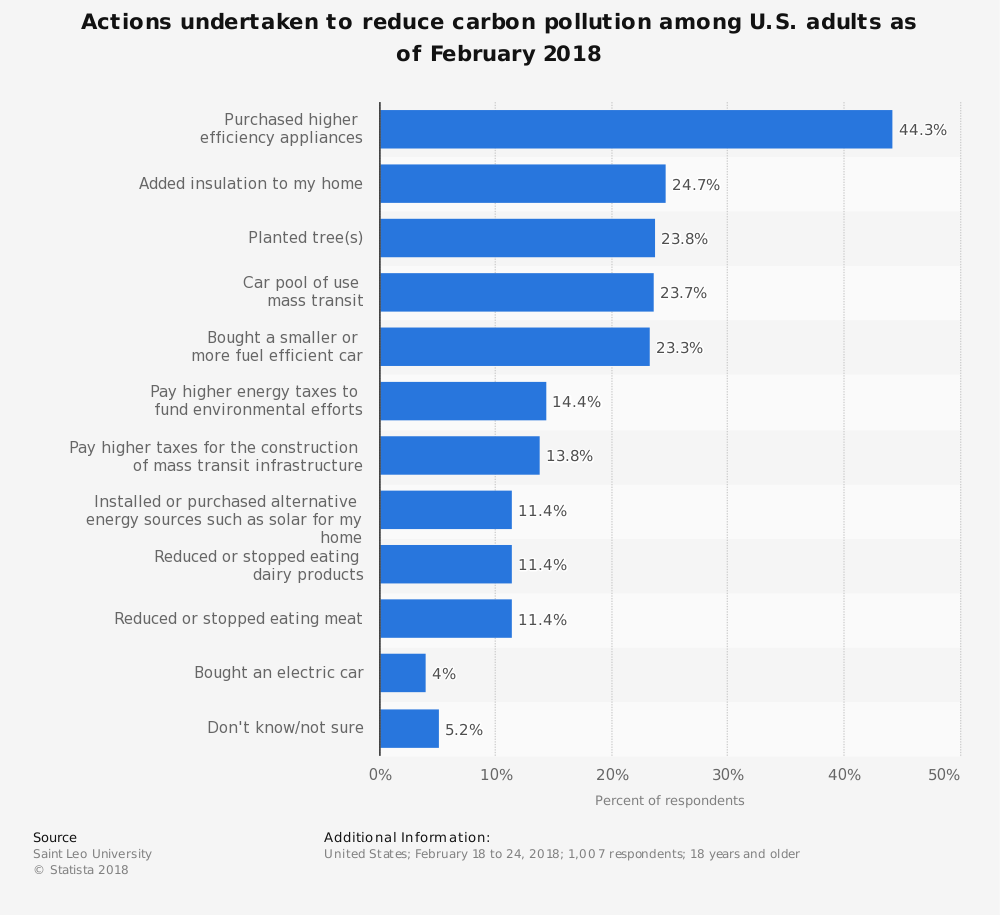
14 Advantages And Disadvantages Of Carbon Tax Vittana Org

18 Advantages And Disadvantages Of The Carbon Tax Futureofworking Com
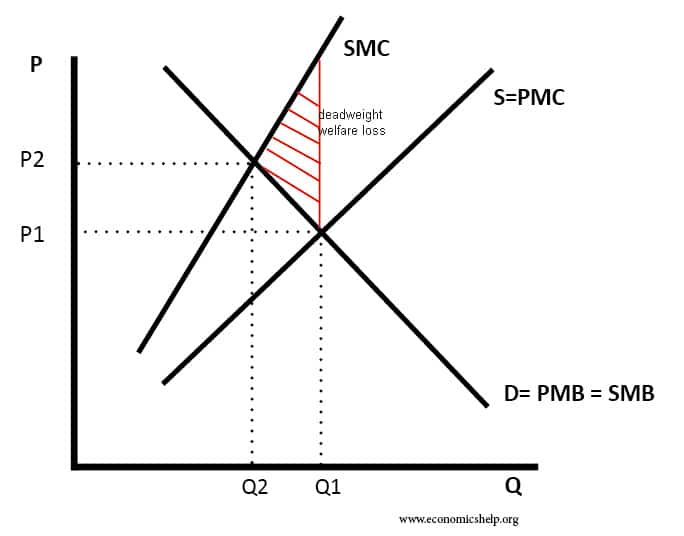
Carbon Tax Pros And Cons Economics Help

Factbox Carbon Offset Credits And Their Pros And Cons Reuters

Pros And Cons Of State Of The Art Approaches Download Scientific Diagram
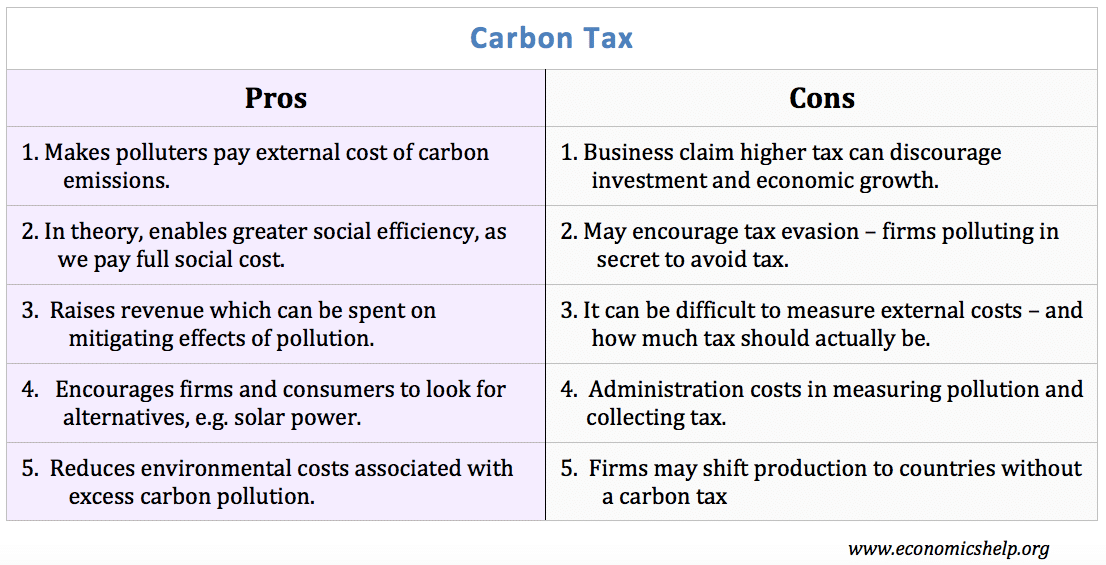
Carbon Tax Pros And Cons Economics Help

Pros And Cons Of Each Regional Economic Model Type For Estimating Download Scientific Diagram
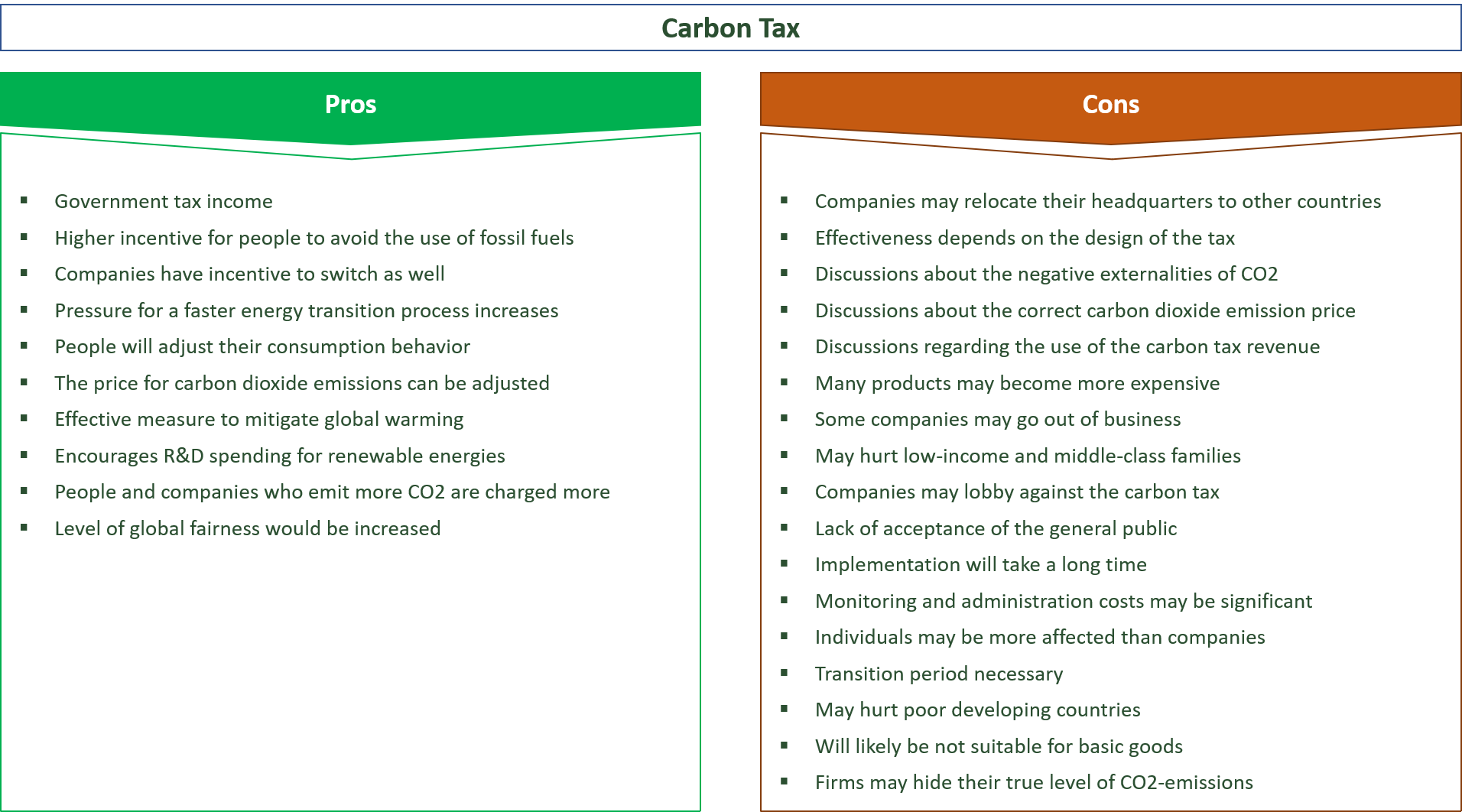
27 Main Pros Cons Of Carbon Taxes E C

Pros And Cons Of Each Regional Economic Model Type For Estimating Download Scientific Diagram
